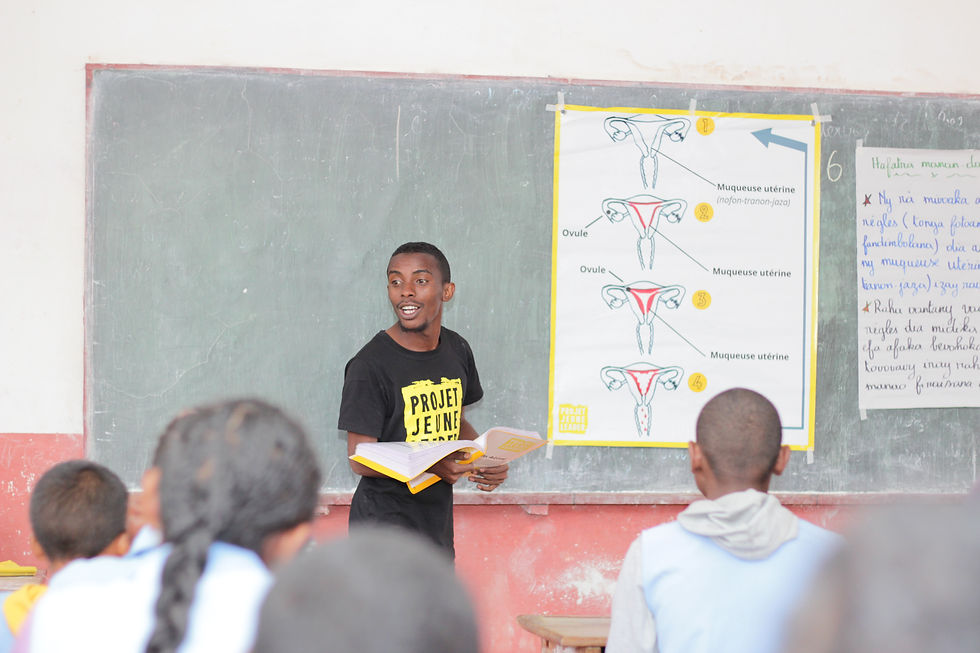A Spotlight on Counseling: Why it’s Core to our CSE Program
- Projet Jeune Leader

- 20 avr. 2023
- 2 min de lecture

Last year, Ranjha held 90 one-on-one, confidential counseling sessions with students at Ambohimahasoa middle school.
It’s one of the core services he provided as a full-time PJL Educator at the school, in addition to teaching a yearlong sexuality education course to every 6th, 7th, and 8th grader during the school day and running enrichment activities after school.
Ranjha is a much-loved, respected leader at the school—not just because he’s a super-dynamic, youthful teacher that students get to know in sexuality education class, but because he’s a supportive role model they get to know through counseling.

In Ranjha, Ambohimahasoa’s teens have gained a mentor for the first time: someone able to help them navigate the challenges of adolescence, at school and in life.
Each of Ranjha’s counseling sessions is a chance to provide individualized support to a student in need—sometimes in small tangible ways (say, sharing study advice for an upcoming test) and sometimes, in life-altering ways.

“One day, a young girl came to see me for counseling after we had just completed the unit about menstruation in class,” recalls Ranjha.
“The lesson discussed how once a girl has her first period, she is able to get pregnant. She confided in me about an older man who had been flirting with her, and her friends in the neighborhood were encouraging her to accept his advances.
So, I asked her a question:
‘What did she want to do, given everything she has learned in the PJL class?’
She responded that her choice would be to continue her studies, that she is not yet ready for this kind of relationship. I applauded her, reinforcing that this was a good decision and that this is part of our goal—to put education before all else.
In short, this shows how the education we are providing at PJL is enabling young girls’ full development and ambition.
The lessons that I taught on sexual and reproductive health had a real impact on this young girls’ life.”
For young adolescents—especially girls—the trusted support they receive from PJL’s Educators can be transformative.
In rural Madagascar, where only 19% of students who enroll in middle school finish and where 40% of girls under 18 years old are married, empowering advice from a trusted educator like Ranjha can make a positive difference.
As Ranjha shared, it’s what we mean when we say that we are enabling youth to reach their full potential.



